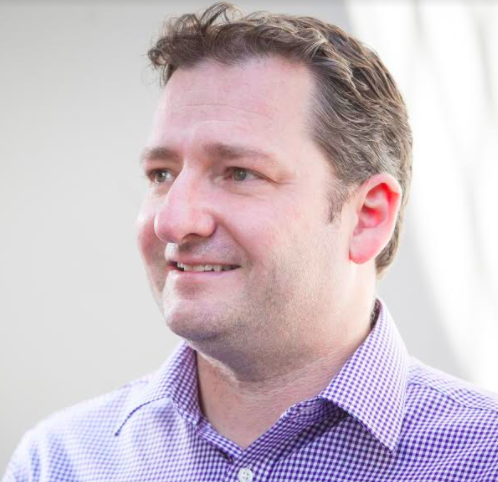Barry O’Leary
Wesley Gryk Solicitors

Barry is a partner at Wesley Gryk Solicitors and his practice deals with the full range of immigration and nationality issues. He has particular expertise in applications based on partnership and family; applications following international surrogacy arrangements; European free movement law: and asylum and human rights claims based on sexual identity.
He teaches the ILPA courses on ‘Significant Others’ (relationship based applications) and International Surrogacy. He is the co-chair of the annual conference on Children’s Rights in Immigration, Asylum and Nationality Law.
Barry's Upcoming Training
Barry's Past Training
ILPA will be holding its first ever children’s rights conference focusing on children across the immigration and asylum system. Aimed primarily at immigration practitioners, but also of interest to family and community care lawyers, the conference aims to cover a wide range of issues and developments in:
- The interplay between family and immigration law
- The best interest of the child
- Legal aid
- No recourse to public funds
- Asylum and trafficking
- Surrogacy and adoption
- Registering children as British citizens and
- The experience of children themselves within the immigration
Chairs: Neena Acharya of Coram Children’s Legal Centre and Barry O’Leary of Wesley Gryk Solicitors
Panelists:
Kathryn Cronin, Barrister at Garden Court Chambers
Catherine Robinson, Barrister at One Pump Court Chambers
Lucy Leon and Amina, The Children’s Society
Bella Kosmala, Strategic Litigation Fund Manager, Immigration Law Practitioners’ Association
Emma Cohen, Associate at Bindmans LLP
Katie Dilger, Senior Associate at Bates Wells
Clare Jennings, Director and Head of Public Law and Community Care at Matthew Gold Solicitors
Abi Brunswick, Director of Project 17
Juliane Heider, Solicitor at Elder Rahimi Solicitors
Anna Skehan, Solicitor at Migrant & Refugee Children’s Legal Unit (MiCLU), Islington Law Centre
Steve Valdez-Symonds, Refugee and Migrant Rights Programme Director at Amnesty International UK
Tom Hardwick, Supervising Solicitor for the Children’s Pro Bono Legal Service at Coram Children’s Legal Centre
Hilka Hollman, Partner at Freemans
Alison Hunter, Partner at Wesley Gryk Solicitors
Colin Rogerson, Partner ans Solicitor Advocate at Dawson Cornwell
Tutors: Barry O’Leary, Wesley Gryk Solicitors LLP and Sadat Sayeed, Garden Court Chambers
Practitioners are often presented with the situation where the client wishes to make an application for leave to enter ( a visa) but have previously breached UK immigration law or used deception in a previous application. The client needs to be advised as to how the previous breach of immigration law will affect the next application.
The aim of this course is to assist immigration law practitioners through the minefield which the immigration rules have become in this area.
1. Introduction to the general grounds of refusal
2. General Principles
3. Mandatory grounds in paragraphs 320 (7A) and (7B)
4. Table of mandatory bans under paragraph 320 (7B)
5. Particular issues arising under 320 (7B)
6. When does 320 (7B) not apply?
7. Family settlement applications and ‘general grounds’/suitability
8. Article 8 and the general grounds of refusal
9. Paragraph 320 (7A) and the confusion that can arise with 320 (7B) and 320 (11)
Tutors: Kathryn Cronin, Garden Court Chambers, Barry O’Leary, Wesley Gryk Solicitors and Naomi Angell, Osbornes Solicitors
In a case-based seminar, we will look at immigration, nationality and related family law problems arising out of the developing law in this area. These include obtaining passports and travel documents for the children; private international conflicts of law; questions of domicile and the appropriate family jurisdiction; obtaining family orders in the UK and getting permission to bring surrogate children into or to remove them permanently from the UK.
This complex area of law will be covered by discussion of the following scenarios:
- Two British gay men who enter a surrogacy arrangement in the US.
- A married British couple who commission a child in India, Israel or Ukraine.
- An expat married couple who have arranged an overseas surrogacy but want a British family order
- An expat or foreign married couple who have come to the UK to have a child by a private surrogacy arrangement in the UK.
- The implications of an informal surrogacy arrangement in the UK, with an overseas birth mother – examples to include an EU and non-EU mother.
Tutors: Tim Barnden, Bates Wells and Barry O’Leary, Wesley Gryk Solicitors
Our popular Significant Others session is back: covering all aspects of applications for spouses, civil, unmarried and same sex partners.
Participants will have a clear understanding of the more difficult issues relevant to making applications by the partners of British and settled people.
Learning objectives: To give an overview of the immigration rules for significant others with a particular focus on partners with adverse immigration histories
Anticipated learning outcomes: For delegates to be better able to assist significant others in both straightforward and difficult claims
Topics:
Appendix FM framework as it relates to partners/getting married/genuine and subsisting marriages and relationships/Article 8 ECHR/Paragraph EX/ exceptional circumstances/paragraph 320(11)/ appeal rights.
The course will have a particular focus on partners with an adverse immigration history.
Tutors: Barry O’Leary, Wesley Gryk Solicitors and Tim Barnden, Bates Wells
Our popular Significant Others session is back: covering all aspects of applications for spouses, civil, unmarried and same sex partners (excluding financial requirements). Participants will have a clear understanding of the more difficult issues relevant to making applications by the partners of British and settled people.
Part 2: Less straightforward applications for partners
• Paragraph EX
• Exceptional circumstances
• Article 8 ECHR
• Paragraph 320(11)
• Appeal rights
